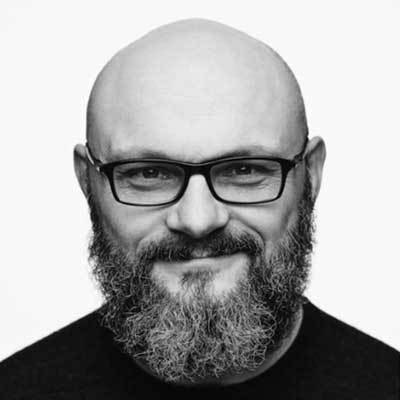By Hart Caplan
Ever since I was a kid, I’ve had the feeling that I inhabit spaces differently than others. That suggests that I had—and, I suppose, still have—an idea of how others inhabit spaces. That’s not quite true, because how does one know how others have the felt sense of inhabiting a space, such as the room I’m sitting in, for instance, as I compose these words?
These are difficult questions to answer, because they presume information about oneself and about other selves that are, by their nature, difficult to investigate. These are questions that are not scientific, because they resist a certain kind of investigative thinking that science demands: i.e. an examination at a distance. A scientific investigation is a type of inquiry that demands a certain vantage point, a particular point of view. This isn’t that. Please don’t misinterpret me here—I am not making the case that science and its vantage point are bad. It’s not about badness; it’s about appropriateness, and it’s about pragmatics. This is an instance where looking through the scientific lens has produced a thin narrative out of the richness of being a person. And that thin story with its impoverished language impacts those of us with neurological differences.
So this isn’t science. Cool. This is just a lone person sitting in a room trying to glean and then understand something about his own experience of that space and then trying to glean and understand something about his experience of the experience of that space. The reason for the inquiry, and the reason I think it is important to try to relate something about my experience of simply sitting in a room is to try to describe the differences in our experience of the world. But… that’s not quite right either: it’s not an experience of “the” world. It is the experience of “a” world. To my way of thinking, there is no “the” world. We experience a thing we call “the” world in ways others—and I’m not talking about exotic others who live on the other side of the planet and speak different languages, etc.—do not. This is what I’m indicating when using the word neurological. Neurology is the term we use—or at least this is how I use it—to describe the way we experience “the” world as “our” or “a” world. When we reference neurological differences or neurodiversity, this is what it means. To say that I have a neurological difference isn’t to say that there is a difference in me but that the difference emerges in my relationships with aspects of my environment.
Ever since I was a kid, it has felt to me that when I am in a room, I am in the whole of the room. It felt, and still feels, like the thing that I call myself is somehow distributed throughout the whole of the room. I remember as a kid thinking that it felt like I was everywhere in the room… that I was in all the corners. I didn’t have a name for it then and perhaps that is precisely why I never spoke about it. I didn’t have a name for it and talking about things without names and descriptions is tough. I now have a name for it: I think of it as having a distributed sense of self. I now think that it is part of the experience of being a person with adhd. My point here is not that all folks with adhd have the same distributed sense of self I am describing about my own, but that those with neurological profiles different from those we call typical may inhabit spaces, well… differently. You don’t know until you ask. And you don’t know that you can answer or what you will answer until you know there is room for difference. I hope this kind of work can participate in making that space.
I didn’t know how others experienced being in a room, but it was my intuition that my experience was different than others. Being an old guy now, I think that still holds. I am a Counsellor, and one of the things that I get to do on a daily basis is ask people questions about their experience of being a person. That, maybe, sounds odd. It feels a little odd as I look at the sentence on my screen. But that is the job. Well… that is my job. As I have come to understand it, It’s not my job to ask, “what is the difficulty that you are struggling with and how can we work to solve it?” Rather, it is my job is to ask, “what is like to be the person that you are, and by sharing the kind of person that you are—your experience of space and time and inanimate objects and relationships and yourself and death—how can we understand the thing that you call the difficulty you are struggling with and given all that… how will you proceed?”
The kid that I was sensed that he was different from the people surrounding him. I didn’t have the language to describe my sense of myself in a room, but I did know that I didn’t hear others speak about their experience in a way that was familiar to me, and I didn’t read stories that represented that sense of being a distributed self. As I look back on my younger self, I don’t think that I thought that everybody had a similar feeling about themselves in the world. I think that I felt different and weird. And feeling different and weird in a moment when I desired to feel typical made me at odds with myself.
This is one of the fundamental experiences of being a person with adhd: a pervasive sense of internal tension, because difference and weirdness are not compatible with the feeling of ease. No doubt that is an experience that all people have, whether one tends towards a more typical engagement with their world or one has a neurological difference. I will say that the latter simply carries a heavier metabolic. That in itself is part of the resource intensive nature of having adhd: the back and forth feeling that persists for decades, for some the whole of their life, about whether my experience of myself in a world is ordinary and regular or somehow weird and other. And this also points to a second order difficulty: neurological differences present differently in different contexts or environments. There will for all of us, whether typical or diverse, be environments that are more and less hospitable places for us to inhabit. The difference in sense of hospitality between the more typical and the more neurologically diverse is one of duration and intensity. That is, being in an inhospitable place to a person with a more typical neurology might provoke emotional and bodily states of discomfort or dissatisfaction. For a person with, say, adhd, it can produce sensations of profound panic, restlessness that would make the Buddha squirm, or fatigue that feels like all metabolic resources have been surrendered. But in other circumstances that are more hospitable, I can surprise myself and find resources I didn’t know I had to persevere. Here’s the problematic question that those of with neurological differences must constantly ask: which one us is going to show up, the person who is looking for a way to escape or the one who perseveres? Without foreknowledge of the way that one is going to show up in any given situation, it becomes challenging in the extreme to plan a day or a week or a year down the road. Without an understanding about the parts of our world that are more or less hospitable to the people we are, it will always be a crap shoot which version of ourselves we will find.
At the risk of overstaying my welcome, let me finish with an irony and a kind of kicker to this exploration of a distributed self in space: our experience of time is the precise opposite. As I feel distributed in space, I feel equally gathered up or compressed in time. And this, in my telling of the story, is what produces such strong reactions to inhospitable places: the feeling that what I am experiencing now in my thinking or my emotional state or my bodily sensation is gathered up around, tight to me, and in that state the idea of a future that is any different than my experience in this present is nearly impossible to imagine. And even if I can imagine it cognitively, it doesn’t land emotionally.
I think that is largely true that those of us with adhd live in a kind of eternal present: i.e. an experience of enduring now-ness. And as I look into this thing that I call the future, that feeling of perpetual now-ness is fine as long as the experience of now is fine. But when my experience of now-ness feels dangerous or tedious or uncomfortable—cognitively (dissonance), emotionally (dysregulated), or bodily (pain or discomfort)—that experience of the future that I have described in the language of the eternal present, that gathers the past and future into the difficult present… well… it would be weird if a person whose past and future were wholly colonized by their difficult present didn’t react in horror or panic.

Hart Caplan
Hart Caplan is a counsellor and writer, based in Vancouver.
Specialising in ADHD and Neurodiversity, Hart is a Counsellor and Co-Founder of Nightingale Counselling and Research.
Hart’s recent writings include “Perfectionism, Part I: The Problem of the Product”, “A Dream is a Wish Your (Neurons and/or Unconscious) Makes”, “Feelings vs Emotions” and “Representations of ‘Everything’: a Movie, a Philosophy, and a Dream”.
His practice can be found at www.nightingalecounselling.com

Leave a Reply